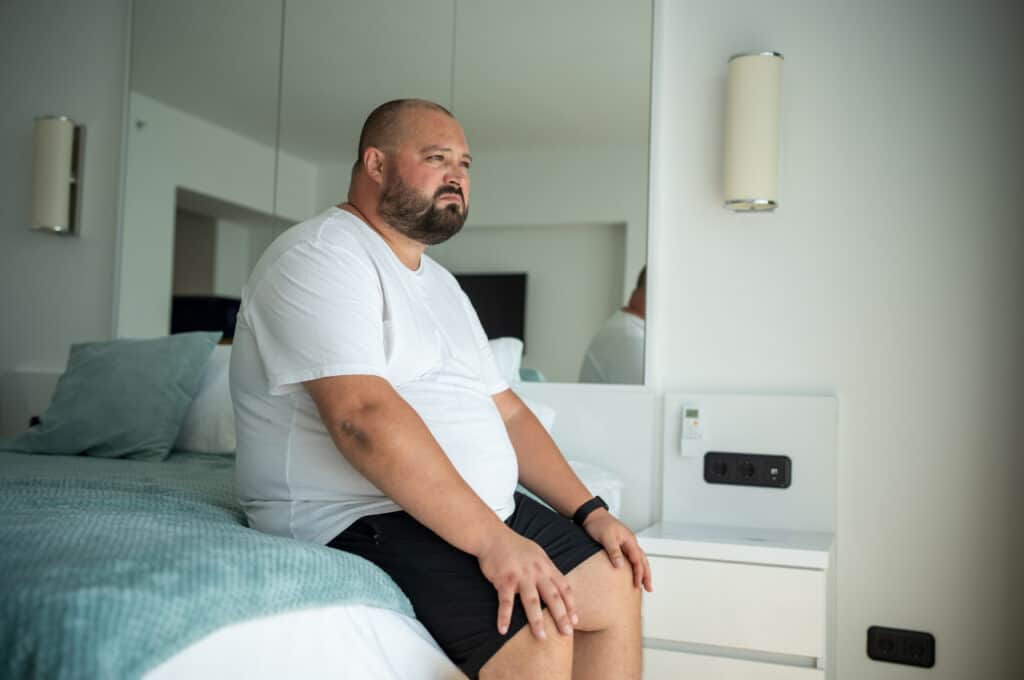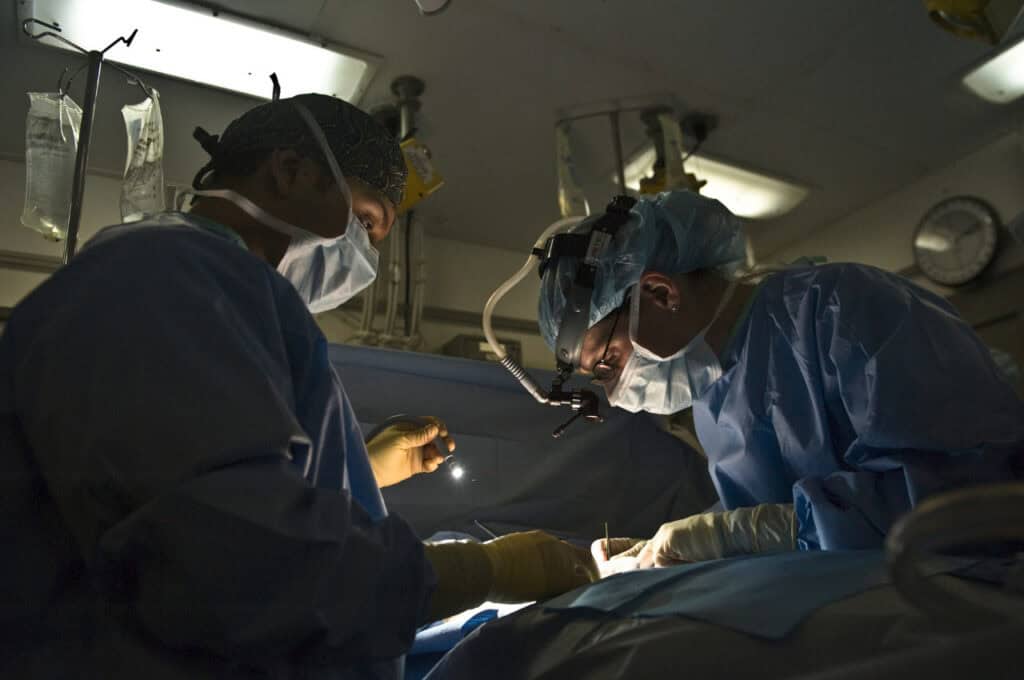Many men feel self-conscious about their bodies, but sometimes, specific concerns become overwhelming. Gynecomastia, or male breast enlargement, does not only affect physical appearance. It can also have a deep impact on emotional health.
At the Gynecomastia Center of Boston, we understand that this condition often leads to questions, worries, and even distress. In this article, you will discover how gynecomastia relates to mental health, how we approach care, and what support is available in Boston and beyond. We encourage you to take your time and explore the information that matters most to you.
Key Takeaways
- Gynecomastia’s Emotional Impact: Male breast enlargement often causes feelings of embarrassment and anxiety, which can affect self-esteem and social life.
- Mental Health Risks: Untreated gynecomastia can increase the risk of depression, social withdrawal, and negative self-image.
- Root Causes Matter: Hormonal changes, medications, and other medical conditions often underlie gynecomastia, and understanding them is key for proper care.
- Treatment Can Help Well-Being: Both surgical and non-surgical options exist, and they often help restore confidence and improve emotional health.
- Supportive Environment: Open conversations with healthcare providers and loved ones lead to better outcomes and reduced stigma.
- Holistic Recovery Process: Addressing mental health is a vital part of successful recovery, not just the physical symptoms.
- Boston-Based Resources: Local support groups and counseling are available to complement medical treatment.

Understanding Gynecomastia: More Than Physical Appearance
Most people recognize gynecomastia as an enlarged male breast tissue. However, this condition encompasses much more than visible physical changes.
What Causes Gynecomastia?
Gynecomastia results from an imbalance between the hormones estrogen and testosterone. Higher estrogen or lower testosterone triggers excess glandular tissue growth in the chest. This is not simple fat accumulation, but rather actual breast tissue development.
Medications, health conditions, and lifestyle factors can also play a role in causing gynecomastia. These include:
- Hormonal changes: Puberty, aging, or thyroid problems often shift hormone levels.
- Medications: Some antidepressants, anti-anxiety drugs, steroids, and heart medications may cause changes in breast tissue.
- Other causes: Substance use (alcohol, marijuana), chronic kidney disease, and certain tumors can also trigger gynecomastia.
It is important to work with a knowledgeable surgeon or provider in Boston to determine the cause before considering treatments.
Symptoms: Physical and Beyond
The primary physical sign of gynecomastia is a firm, often tender enlargement beneath the nipple area. Both sides can be affected, or sometimes only one breast is larger. This swelling may cause mild discomfort or sensitivity.
Yet, the real impact goes beyond symptoms you can see. The emotional and mental distress resulting from gynecomastia often becomes the most persistent concern for men seeking help at our practice.
The Mental Health Burden of Gynecomastia
Gynecomastia affects your mind just as much as your body. Patients at the Gynecomastia Center of Boston often report significant emotional struggles linked to this condition.
The Emotional Cost of Male Breast Enlargement
For many men, enlarged breast tissue leads to embarrassment and shame. Some avoid situations that involve removing their shirt, such as swimming or playing sports. You might notice yourself hiding behind baggy clothes, or skipping social events altogether.
Peer teasing and bullying only make matters worse, especially during adolescence. These negative experiences can have lasting effects well into adulthood.
Risks for Mental Health Concerns
Gynecomastia increases the risk for several mental health issues. Here are some of the main concerns associated with this condition:
- Low self-esteem: Many patients feel less masculine or confident in their appearance. This loss of self-worth can affect all areas of life.
- Anxiety: Worry about what others may think often leads to social anxiety, making normal interactions feel overwhelming.
- Depression: Persistent sadness can develop, especially if feelings of embarrassment or shame linger for months or years.
- Body image issues: Some men fixate on their chest and struggle to see themselves clearly in the mirror.
Addressing gynecomastia’s emotional effects is as important as treating its physical symptoms. At our Boston office, we prioritize listening to your concerns and providing a nonjudgmental, supportive environment.
Impact on Daily Life
Gynecomastia can strongly interfere with relationships, hobbies, and career goals. You might skip gym sessions, avoid intimacy, or feel distracted during meetings or classes because of anxiety about your chest.
Waiting too long to address these worries may deepen isolation. Seeking help early helps prevent emotional distress from becoming longstanding or severe.
Why Support and Disclosure Matter
Feeling alone or misunderstood can happen quickly with gynecomastia. Knowing when and how to seek support is key for your own well-being.
Should You Tell Others About Your Gynecomastia?
Deciding who to talk to about gynecomastia is a personal choice. You may worry about others’ reactions or fear being judged. However, opening up to a trusted friend, partner, or family member often brings relief and validation.
We encourage patients to share their thoughts when they feel comfortable. Many are surprised to learn that loved ones care more about their happiness than their physical appearance.
How Support Improves Mental Health
Supportive conversations help reduce shame and isolation. When you talk about what you’re experiencing, your stress levels often decrease, and solutions can become easier to see.
Our Boston-based team offers a confidential, safe space for these discussions. We often connect patients to local support groups or counseling when it could help enhance mental health during their journey.
Medical and Surgical Treatment Options: Physical and Emotional Benefits
Treating gynecomastia can improve both your appearance and mental health. Our surgeons in Boston evaluate your unique needs before recommending a care plan.
Non-Surgical Treatments
If an underlying medication or health condition causes gynecomastia, changing or treating it may resolve the issue. In teenagers, gynecomastia from puberty usually fades without intervention, but we monitor progress to offer reassurance and guidance.
Sometimes, lifestyle adjustments like weight management or avoiding certain substances can help. These options can ease symptoms or prevent the condition from worsening.
Surgical Solutions
When gynecomastia persists, surgery may provide a permanent physical solution. Surgical options include:
- Liposuction: This removes excess fat from the chest, best for cases where fatty tissue predominates.
- Glandular excision: This targets dense glandular tissue that is unresponsive to liposuction.
- Combined techniques: Surgeons sometimes blend both approaches for a smoother, natural result.
Surgical intervention offers psychological benefits alongside physical change. Most patients notice a significant boost in self-confidence, a greater willingness to engage socially, and a reduced preoccupation with body image fears after surgery.
Emotional Improvements After Treatment
The majority of patients at the Gynecomastia Center of Boston report feeling happier and freer after resolving gynecomastia. Many regain motivation to exercise, build stronger relationships, or pursue activities they previously avoided.
Post-surgical counseling or ongoing support is sometimes helpful, especially for those who have struggled with body image for many years. We partner with local therapists when deeper mental health support is needed.

Recognizing and Addressing Psychological Challenges
Not every patient experiences severe mental health symptoms, but it’s vital to watch for them. Early recognition and intervention can make a difference.
Signs of Psychological Distress
If you notice any of these signs lasting more than a few weeks, consider reaching out for help:
- Persistent sadness or mood changes
- Loss of interest in enjoyable activities
- Withdrawal from friends and family
- Irritability or hopelessness
- Trouble concentrating or falling behind at work or school
Adolescents with gynecomastia are particularly at risk for mood problems. Open dialogue with parents, teachers, or our providers can make it easier to spot problems early.
Integrating Mental Health Support Into Care
At the Gynecomastia Center of Boston, we treat each patient as a whole person. This means addressing emotional as well as medical concerns. We may recommend:
- Individual counseling to process feelings about your body and experiences
- Group therapy or support groups for shared understanding and encouragement
- Relaxation or mindfulness-based stress relief techniques
If mental health symptoms are severe, such as signs of major depression or suicidal thinking, we help connect you with urgent psychological care. Your safety and well-being always come first.
The Social Context: Stigma, Masculinity, and Community
Gynecomastia occurs in all types of men, regardless of age, fitness level, or gender identity. Despite its frequency, stigma and misconceptions can make it hard to talk about.
Understanding Stigma and Its Effects
Male breast enlargement often carries an unfair social stigma. Some believe it “should not” happen to men, while others assume it results from a lack of effort or willpower. These beliefs are untrue and harmful.
The result is that many men suffer in silence, reinforcing loneliness and shame. Challenging these myths, both individually and as a community, leads to better health outcomes for everyone.
Embracing Masculinity and Self-Acceptance
It is important to know that masculinity is not defined by physical traits. Patients often feel empowered and more at peace when they begin to reject shame-based views of their bodies.
At our Boston office, we encourage open dialogue and self-compassion, regardless of whether you pursue surgery or another treatment. Finding self-acceptance is a journey, one our staff wants to support.
Steps for Proactive Recovery: Caring for Body and Mind
Taking charge of gynecomastia and its psychological effects means caring for your whole self. Patients in Boston and beyond benefit from a proactive approach to healing.
Here is a basic framework for positive recovery:
- Seek accurate diagnosis: A thorough evaluation by a qualified provider ensures both physical and emotional factors are addressed.
- Set realistic expectations: Understand what treatment can achieve and give yourself time to adjust to changes.
- Build a support system: Connect with friends, family, or mental health professionals for encouragement throughout your journey.
- Attend follow-ups: Routine visits help catch any emotional or physical concerns early and support sustained progress.
- Practice patience: True recovery takes time; be gentle with yourself as you heal both inside and out.
Recovery is deeply personal. Some individuals need emotional support before or after surgery, while others focus on reconnecting with daily life. At the Gynecomastia Center of Boston, we offer individual guidance tailored to your situation.
Your Next Steps
Gynecomastia reaches beyond simple physical changes. It can influence every aspect of daily life, from emotions to social interactions.
Addressing both the visible and invisible aspects of gynecomastia leads to lasting well-being. Whether you have lived with this condition for years or just now noticed symptoms, compassionate care is available as you move forward.
At the Gynecomastia Center of Boston, you will find understanding, expertise, and an honest commitment to your health. We invite you to schedule a consultation with our team to discuss both your concerns and goals. Together, let’s take positive steps toward greater confidence and peace of mind.






